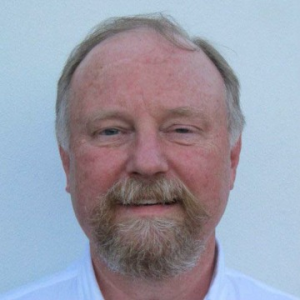 As the new MCARES Training Manager, I’m focused on building on the extensive and valuable content that Eli Pride has provided the organization. We have an ambitious year ahead for the organization, and I’m confident we can achieve our goals with the help of our talented membership.
As the new MCARES Training Manager, I’m focused on building on the extensive and valuable content that Eli Pride has provided the organization. We have an ambitious year ahead for the organization, and I’m confident we can achieve our goals with the help of our talented membership.
I’m originally from Boston, MA (longtime Celtics fan). I have business degrees from Ohio University, Babson, and The Wharton School – University of Pennsylvania. For the following 25 years I pursued career opportunities in the financial services industry. Roles that I’ve held include the responsibility for recruiting, training, and development for a Fortune 50 company, sales and marketing executive for a large financial products company, and a business consultant for an international consulting firm.
I left the corporate world to try my hand at entrepreneurship. Two companies were built from scratch, one sold to The Hartford Insurance Company and the second to the AICPA (American Institute for Certified Public Accountants).
I’m currently a college professor teaching business courses at Portland State University and Mount Hood Community College.
My wife and I moved to the northwest over 12 years ago. Deb joined a friend to start a business. They were the first franchisees in the northwest for what is known as Curves for Women circuit training. We live next to the Glendoveer Golf Course with our children and three noisy dogs.
Four years ago I began to pay more attention to how communities and families prepare (or aren’t prepared) for natural disasters and events. At the time the Portland NET program had a waiting list, so I completed the CERT program for Clark College (Vancouver). Later I completed the Portland NET program as well.
During the time I was participating in the NET program, I had a discussion with a firefighter regarding communications during a disaster. He strongly encouraged me to investigate amateur radio. I ended up taking the PBEM test prep, led at that time by Nate Hersey. While preparing for the test a fellow ARO suggested I prepare for all three test levels. It wouldn’t cost any more, and I could take them all in one sitting. My wife suggested that taking all three would be too much, and I should only focus on the Technician level. That’s all the motivation I needed. With my pride on the line, I prepared for and passed all three. Pride and panic set in because I was now legal to do something I had no idea how to do. I didn’t even have a radio yet!
So after some time and experience I’m much more confident about the role of amateur radio and participating with other hams. I am also aware of what I don’t know, and the importance of pursuing continued education and opportunities to gain experience. For reliable emergency communications, I’m convinced that amateur radio has the critical support role. This role is so important that as members of ARES, we must continue to work on improving our accuracy and professionalism in the execution of the activities to which we have committed. Lives may depend on us.
Being a licensed pilot, I consider the pilot training I received to be similar to the ARES radio training.
Most of the education and training to fly was about mastering emergency procedures, e.g. how to land a helicopter safely when the engine quits. Part of preparation included a catastrophic engine failure. I was trained to take a perfectly good helicopter up, and – at 1,000 feet – turn the engine off. You had to learn to instinctively put the ship into what is called autorotation and land safely. As a student pilot you would continue to “shoot autos” until you could do it without thinking. The most anxiety producing training: doing autorotations at night!
I see mastering emergency radio communications in a similar way. We need to be ready and act instinctively, and to act with great precision. To achieve this will take good practice. Good practice will generate confidence.
As the Training Manager, I’m committed to providing quality learning opportunities for each member, to learning and mastering skills, and gaining confidence in the execution of the role as an Amateur Radio Operator and member of ARES.